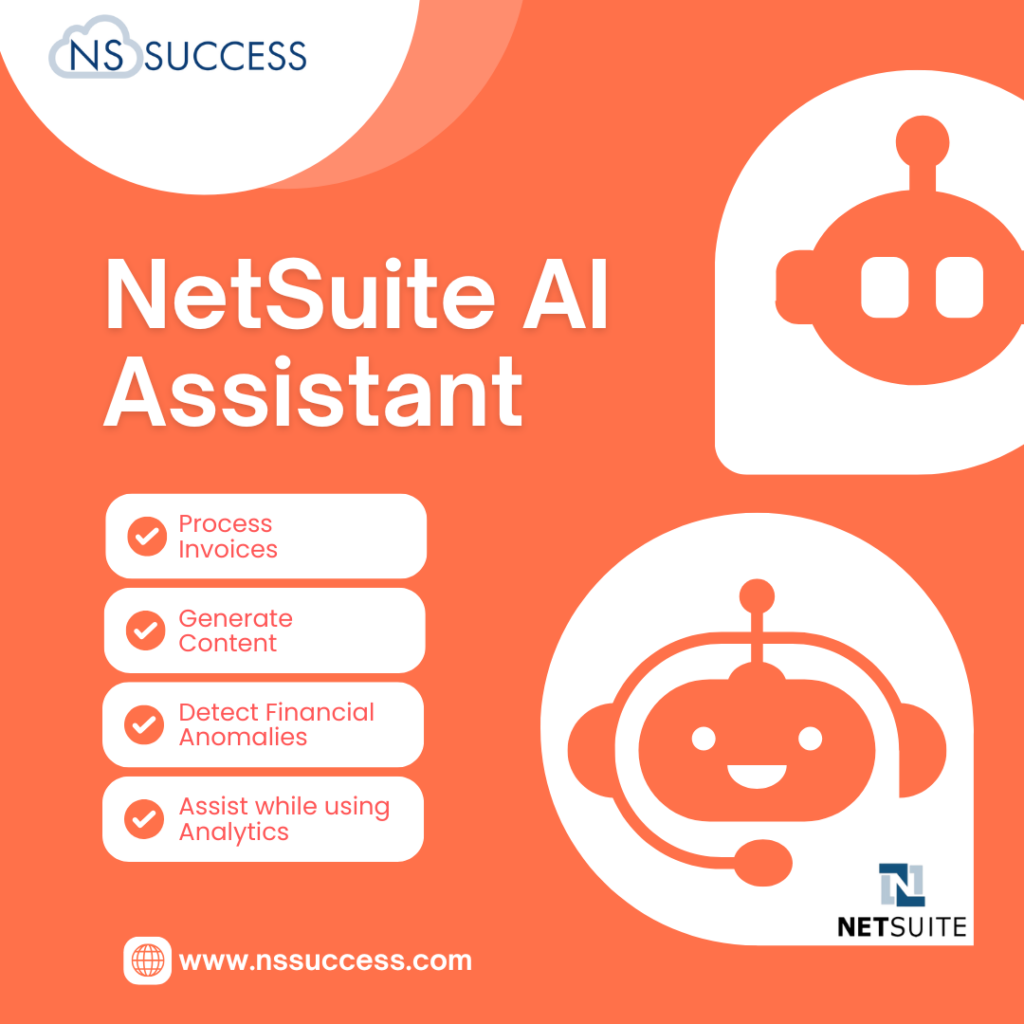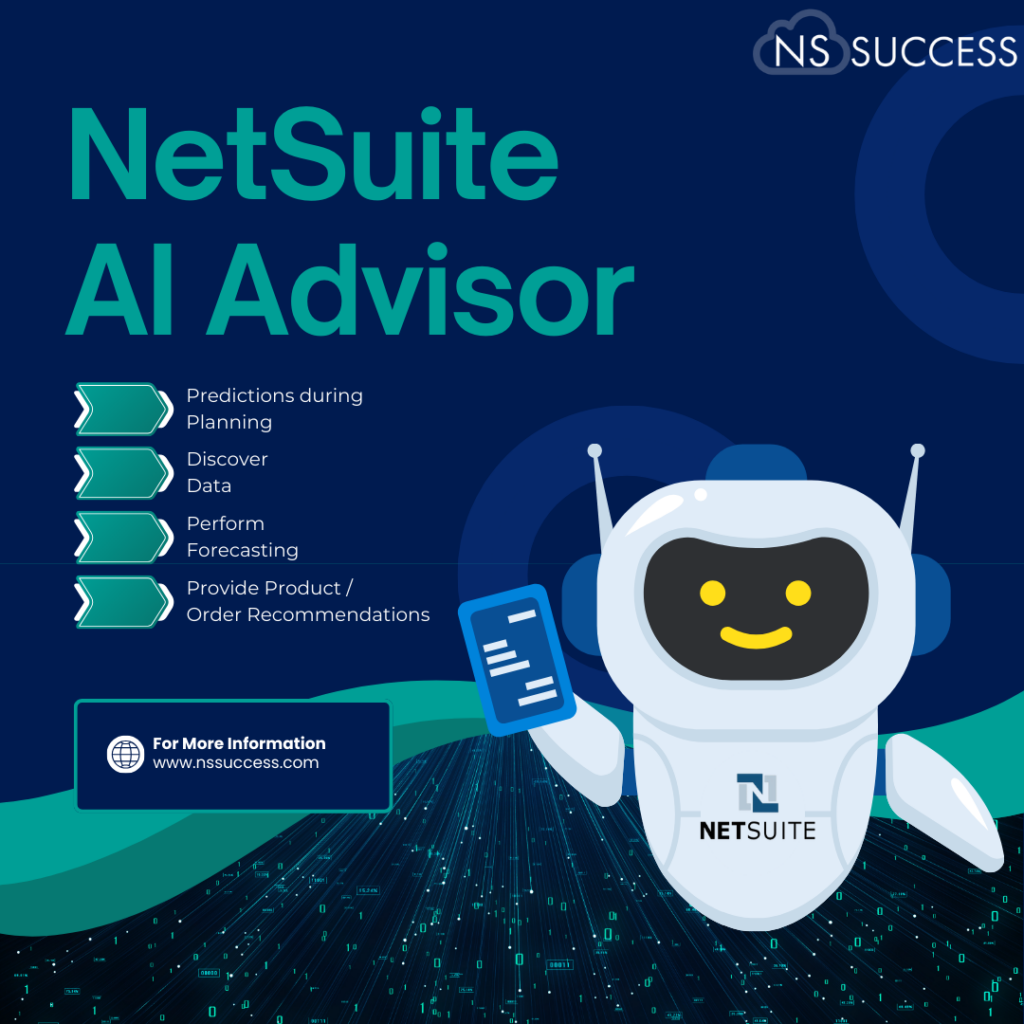ERP – the foundation pillar of Modern Business
Enterprise Resource Planning (ERP) systems have become a backbone for modern businesses, helping organizations manage and integrate core functions such as finance, supply chain, sales, and human resources. By consolidating data across these areas into a single system, ERP software provides real-time insights and ensures smooth operations, making it essential for businesses to operate efficiently and make informed decisions.

The Significance of Artificial Intelligence in ERP
As businesses strive to gain a competitive edge, integrating Artificial Intelligence (AI) into ERP systems has become a game-changer and must-have feature. AI in ERP systems enhances operational efficiency by automating complex tasks, predicting future trends, and offering valuable insights that enable better decision-making. With AI’s ability to analyze large datasets and identify patterns, ERP systems can evolve to become even smarter and more effective, reducing human error and accelerating business processes.
Why Oracle NetSuite?
Oracle NetSuite, a leading ERP solution, has pioneered the integration of AI into ERP systems. With its powerful, cloud-based platform, Oracle NetSuite offers advanced AI-driven features that help businesses streamline operations, enhance productivity, and improve decision-making. By leveraging AI, Oracle NetSuite ensures businesses can adapt to ever-changing market conditions, optimize their resources, and achieve better results.
1. The Evolution of ERP Systems with AI
Traditional ERP vs. AI-Driven ERP
Traditional ERP systems are largely rule-based and require manual input, offering limited intelligence beyond predefined workflows. These systems support basic functions such as accounting, inventory management, and customer relationship management (CRM), but they fall short when it comes to predicting outcomes or optimizing processes based on evolving data.
In contrast, AI-driven ERP systems use advanced machine learning algorithms to analyze data, learn from patterns, and make predictions. This shift from traditional to AI-powered ERP systems is transforming the way businesses operate by automating more complex tasks, making smarter decisions, and providing real-time, actionable insights.
AI Integration in Oracle NetSuite
Oracle NetSuite seamlessly integrates AI into its ERP platform. The AI capabilities within NetSuite are powered by Oracle’s artificial intelligence suite, which includes advanced analytics, predictive capabilities, and automated decision-making tools. These features empower businesses to unlock new efficiencies by using AI to drive processes such as financial forecasting, inventory management, and customer service.
How AI Enhances ERP Capabilities
AI enhances ERP systems in several ways:
- Streamlined decision-making: AI analyzes data and provides real-time insights to help businesses make smarter decisions.
- Intelligent automation: Repetitive tasks like data entry, invoicing, and order processing are automated, reducing errors and freeing up time for strategic work.
- Real-time insights: AI offers dynamic, up-to-the-minute insights, allowing businesses to quickly adjust strategies based on current conditions.
2. Features / Capabilities of AI in Oracle NetSuite
NetSuite AI Assistant
NetSuite AI Assistant integrates advanced AI capabilities to optimize operations, handle repetitive tasks, and enable employees to focus on high-value work. These features enhance accuracy, improve efficiency, and contribute to better decision-making across your organization.
Key features of NetSuite AI Assistant include:
1. Process Invoices

- Simplifies invoice management with AI-driven technologies like document object detection and optical character recognition (OCR).
- Automates the scanning, extraction, and import of invoice data directly into NetSuite, eliminating manual data entry.
- Reduces the time spent by accounting teams on tedious administrative tasks, increasing overall productivity and accuracy in financial processes.
2. Generate Content
- Uses generative AI to create and refine various types of content seamlessly within NetSuite.
- Automates the generation of key business documents such as sales emails, purchase orders, and product descriptions.
- Enhances employee productivity by reducing the effort required for repetitive writing tasks, allowing teams to focus on strategic initiatives.
3. Detect Financial Anomalies
- Continuously monitors financial data in NetSuite to identify inconsistencies and anomalies with precision.
- Helps mitigate risks by flagging irregularities and suggesting actionable solutions to address them.
- Enables finance teams to improve operational efficiency and maintain robust financial controls, ensuring compliance and accuracy.
4. Assist while using Analytics
- Combines NetSuite SuiteAnalytics with generative AI and natural language processing to deliver powerful data insights.
- Retrieves and analyzes data from SuiteAnalytics Workbooks, generating detailed reports and visual charts.
- It provides users with a conversational interface to query data and receive AI-generated narratives, simplifying complex data analysis for faster, informed decision-making.
These AI-powered capabilities are designed to transform business operations, empower teams, and drive excellence, making NetSuite an indispensable tool for organizations striving for operational and strategic efficiency.
AI Advisor
NetSuite AI Advisor empowers organizations with faster, more accurate insights to guide leadership decisions, improve business outcomes, and enable data-driven strategies.
Key NetSuite AI Advisor features are as follows:
1. Predictions during Planning

- Enhances forecasting in NetSuite with AI-based analysis of large datasets, offering improved predictions of future performance and their potential impacts.
- Adds AI-generated commentary and detailed narratives to reports, making insights actionable and easy to understand for stakeholders.
2. Discover Data
- Utilizes AI in NetSuite Analytics Warehouse to uncover hidden patterns, opportunities, and relationships within diverse data sources.
- This feature can provide chart summaries using Generative AI to explain findings clearly and identify primary drivers of revenue growth.
- Facilitates conversational interactions through the Oracle Analytics AI Assistant, delivering insights via natural language, text narratives, and visualizations.
3. Perform Forecasting
- Delivers detailed insights into predictive forecasts within NetSuite Planning and Budgeting.
- Increases accuracy and confidence by explaining the key factors influencing AI-generated predictions.
- Enables finance teams to take swift, informed actions while gaining a deeper understanding of business dynamics.
4. Provide Product / Order Recommendations
- Offers personalized product recommendations during the sales process in NetSuite using AI-based analysis of customer purchase history and buying patterns.
- Helps increase average order size and order frequency, boosting revenue growth and enhancing the customer experience.
These AI-powered advisory tools transform decision-making processes, equipping businesses with actionable insights and strategies to drive efficiency, growth, and competitive advantage.
3. Driving Business Efficiency with AI in Oracle NetSuite
Operational Optimization
AI in Oracle NetSuite automates workflows and reduces errors in business processes. For example, automated workflows for procurement, invoicing, and customer management eliminate manual intervention, reducing delays and improving the accuracy of operations. This efficiency leads to smoother, faster business operations.
Cost Management
By leveraging AI-driven insights, businesses can optimize their resource allocation, leading to better cost management. AI helps identify areas where resources are being underutilized or where expenses can be reduced, such as inventory waste or operational inefficiencies. This will help businesses reduce or optimize costs and increase profitability.
Improved Time-to-Value
AI accelerates the time it takes for businesses to realize value from their ERP investments. AI-enabled planning tools streamline project timelines, automate routine tasks, and provide real-time insights, all of which allow businesses to deliver products and services faster, boosting overall time-to-value.
4. Enhancing Business Effectiveness with AI in Oracle NetSuite
Customer Experience Improvements
AI enhances customer interactions by providing personalized experiences in marketing and sales. For instance, AI-powered tools can analyze customer data to offer tailored product recommendations, improving the chances of making a sale. Additionally, AI can predict customer service issues before they arise, enabling proactive support and improving customer satisfaction.
Predictive Customer Service Capabilities
With AI, customer service teams can better anticipate customer issues and resolve them more effectively. By analyzing patterns in customer data, AI can help predict when and where issues are likely to occur, enabling teams to take proactive measures. This helps organizations reduce downtime and increases customer loyalty.
Supply Chain Resilience
AI in Oracle NetSuite allows businesses to anticipate disruptions in their supply chain by analyzing factors like market trends, weather patterns, and demand shifts. AI can optimize inventory levels to ensure that businesses are always prepared for changes in the supply chain, reducing costs and minimizing risks associated with stockouts or overstocking.
Strategic Decision-Making
Oracle NetSuite’s AI capabilities enable more informed decision-making by providing data-driven scenario planning and simulations. Businesses can model different strategies, forecast outcomes, and adjust their approach based on real-time data, improving their ability to make sound strategic decisions.
5. Challenges in Adopting AI in ERP and How to Overcome Them
Barriers to AI Integration
While AI offers significant benefits, businesses may face challenges when integrating AI into their ERP systems. Common barriers include:
- Data quality issues: AI relies on high-quality of current data to function and analyze effectively. Inaccurate or incomplete data can hinder AI performance.
- Change management challenges: Employees may resist adopting new AI-driven processes.
- Skill gaps in the workforce: Not all employees are equipped to use AI-powered systems effectively.
Oracle NetSuite’s Solutions
Oracle NetSuite addresses these challenges with:
- User-friendly AI tools: Intuitive interfaces make it easy for teams to interact with AI features.
- Extensive training and support resources: Oracle provides training to help employees integrate AI into their daily workflows.
- Flexible, scalable AI features: NetSuite’s AI tools can scale with business growth, ensuring long-term adaptability.
6. Future Trends for AI in ERP Systems
Upcoming Trends in AI and ERP
As AI continues to evolve, ERP systems like Oracle NetSuite will become even smarter, with new features that enhance predictive analytics, natural language processing, and process automation. AI will increasingly be used to optimize business operations across every department, from HR to marketing, providing even more value to organizations.
Oracle NetSuite’s Roadmap
Oracle NetSuite is continually innovating, with future AI capabilities focused on increasing automation, improving forecasting accuracy, and enhancing predictive analytics. As AI technology advances, businesses using Oracle NetSuite can expect even greater efficiency and effectiveness from their ERP systems.
Conclusion
AI in Oracle NetSuite drives both business efficiency and effectiveness by streamlining operations, improving decision-making, enhancing customer experiences, and reducing costs. By integrating AI into your ERP system, your organization can unlock new levels of productivity, profitability, and adaptability. Interested in learning more about how AI in Oracle NetSuite can transform your business? Contact our team of NetSuite Expert Consultants for consultation today and discover how you can leverage AI to drive business success.

 “NS Success” is the NetSuite Consulting Practice of Dhruvsoft Services Private Limited – a leading NetSuite Solution Provider Partner from India – providing services worldwide …
“NS Success” is the NetSuite Consulting Practice of Dhruvsoft Services Private Limited – a leading NetSuite Solution Provider Partner from India – providing services worldwide …